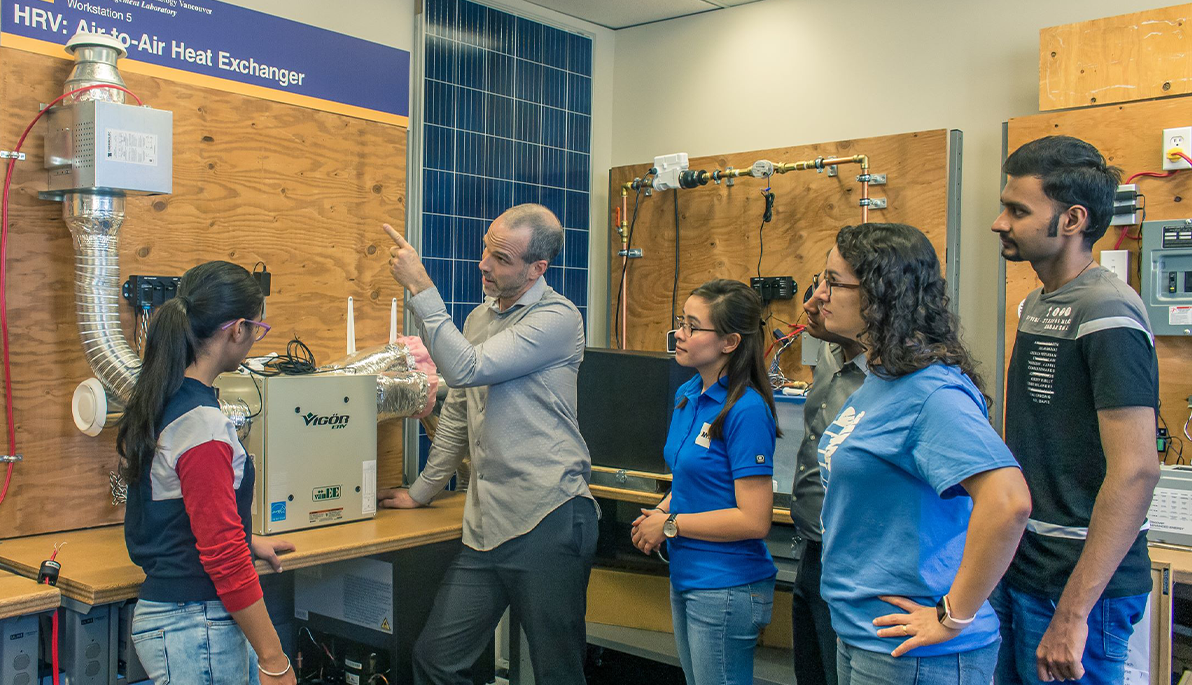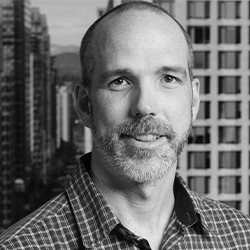
Faculty Profile: Remi Charron

Title: Associate Professor
Department: Energy Management
Joined New York Tech: 2016
Campus: Vancouver
Teaching Resilience
When COVID-19 brought the world to a virtual stand-still, Associate Professor Remi Charron, Ph.D., took the moment to share what he knows about resilience with an even broader audience. The result, a new book called Plan for a Turbulent Future: Your Roadmap to Personal Resilience for a Changing Climate, is being published by River Publishers and will be released in November 2022. The book makes a case that while individuals might have a limited ability to reduce the level of climate change they will experience, they can take action to reduce its consequences. The book includes information on how to plan for physical and mental health, how to prepare financially, how to build community, and how to teach kids to be more resilient.
In the classroom Charron always has a lecture on the challenges posed by climate change. “I started introducing concepts of resilience to help students see the different elements of climate mitigation, adaptation, and resilience that will be required to get us through the various challenges,” he says. “The feedback I got from students helped inform some of the work I did for the book.”
Before arriving at New York Tech-Vancouver, Charron focused on developing an optimization tool for the early-stage design of net-zero energy solar homes as part of his Ph.D. He has worked for 10 years as an independent consultant for the provincial (British Columbia) and Canadian governments on projects related to making housing more energy-efficient and resilient. “Residential energy consumption is responsible for a large portion of our greenhouse gasses,” says Charron. “In order to come near the greenhouse gas reduction levels that are being targeted by governments, most buildings will need to undergo major retrofits. This will require a mix of energy efficiency and fuel switching to move away from fossil fuels. Since we already have housing affordability challenges, we need a lot of attention in residential energy efficiency to help us achieve our greenhouse gas reduction targets in the most affordable way.”
Despite the uphill battle, Charron says he has seen a lot of progress in the last few years. He says the focus has shifted from only considering the greenhouse gases that are emitted during the building operation, to considering all the greenhouse gasses associated with the buildings, from construction to demolition. “With the rising number of floods, extreme heat waves, and hurricanes, there is a growing interest in housing resilience,” says Charron “How do we make sure that the houses we build will be able to survive our new climate, and how do we make sure that the occupants in those houses thrive? This new focus on building resilience is also leading to a lot of work to help transition the building industry.”
In his personal life, Charron is looking beyond sustainable buildings to what it means to live a more sustainable lifestyle. When he is not in Vancouver teaching, he lives with his family on a beef and potato farm in Pemberton, B.C. “My wife and I have some sheep for lambs, chickens for eggs, pigs, and we have grown different crops over the years.”









